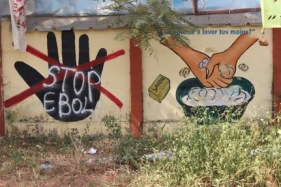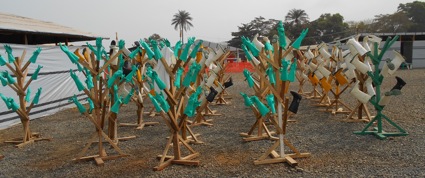The WHO panel on ethics (Aug 2014) stated that it is ethical to offer unproven interventions as potential treatment or prevention in the current Ebola virus disease (EVD) outbreak, provided that ethical criteria guide their provision and data is collected and shared. Subsequently, ethical issues related to study design were discussed (at WHO and in the literature) and non-traditional methods were proposed as pragmatically acceptable alternatives to (placebo) RCT designs. Since then multiple clinical trials have been proposed and implemented in the EVD affected regions. To what extent it has been possible for the research to uphold the panel conditions or internationally accepted guidance on ethics in human research (eg Declaration of Helsinki) is unknown. This study seeks to understand the barriers and facilitators of applying these ethical standards in the current EVD outbreak to inform future research during public health emergencies.
EVD disease control measures included forced quarantine outside treatment centers and isolation in treatment centres of suspected Ebola-infected patients in treatment centers. Facility isolation was applied in West Africa despite potentially being perceived as a coercive measure. The circumstances of EVD isolation lead to distress, cognitive deprivation, incapacity to consult family members, limited dialogue with health care workers (HCWs), dual role of doctors (clinician and researcher), and other constraints on healthcare norms. Whether or not and to what extent the WHO guidelines and international research ethics standards were lived as feasible, sufficient, or recognized as best practice within culturally and otherwise diverse national and sub-national West African contexts remains for the most part unknown (for example constraints and

consent are a poor mix). There is a need for of more detailed empirical research on what happened, what worked, and what did not work well, as standardized and experimental EVD management practices were rolled out in and around EVD treatment centres in West Africa in 2014-15. This comparative qualitative study will assess how research and EVD quarantine and clinical isolation practices in were experienced in practical and ethical terms by: local and expatriate healthcare team members, researchers, ethics review board members, patients/survivors, relatives of patients/survivors, community members and leaders, quarantine enforcers, public health officials, case finders.
This study will 1) provide in-depth accounts of how research interventions interacted with quarantine and isolation disease control measures, and to what extent these were supported or not in Sierra Leone, Guinea, and Liberia; 2) deepen understanding of any practical or ethical challenges associated with enactment of such measures in specific settings and for specific actors; 3) identify & collate recommendations for context-sensitive management of affected community opposition or concerns related to EVD clinical trial practices and WHO guidelines for these.
Progress Report — August 2017
One year into this project, we are finalizing data collection, moving forward with analysis, and have begun dissemination activities.
Read the full progress report here.
A short report on Ebola research participants’ perceptions of research, June 2018:
Cite this study:
- Nouvet, Elysée, Lisa Schwartz, Carrie Bernard, Sonya de Laat, Laurie Elit, Matthew Hunt, John Pringle, Lynda Redwood-Campbell and Oumou Bah Sow. “Isolation, quarantine and research in Ebola management: A comparative study of perceptions between communities, outbreak control teams and researchers (EVD-IQR)”. ELRHA: Research for Health in Humanitarian Crises (R2HC#21174).
This research project is funded by Elrha’s Research for Health in Humanitarian Crises (R2HC) Programme. The R2HC programme aims to improve health outcomes by strengthening the evidence base for public health interventions in humanitarian crises. The R2HC programme is funded equally by the Wellcome Trust and DFID, with Elrha overseeing the programme’s execution and management.
Visit http://www.elrha.org/work/r2hc for more information about their funding programmes.
Photograph credit: John Pringle, HumEthNet member and co-investigator on the EVD-IQR project. Photograph taken in Sierra Leone, spring 2015.



